
With an objective to engage with various sectors to urgently address climate change issues, the Gauteng Provincial Government, in collaboration with Unisa's Thabo Mbeki African School of Public and International Affairs (TM-School), hosted a Climate Change Summit Gala Dinner on 21 November 2023, themed "Towards decarbonisation of the economy and a climate-resilient society".
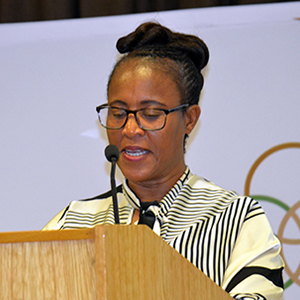
Prof Edith Phaswana
In her welcoming address, Prof Edith Phaswana, Director of Graduate Academic Programmes at the TM-School, said the partnership is essential for the school as it resonates with its focus areas, such as promoting natural resource management and sustainable livelihoods. She added: "Climate change affects these areas; therefore, the school is a suitable partner in this initiative." For Phaswana, this collaborative commitment is crucial in addressing climate change.
Honourable Mbali Hlophe, Gauteng Member of the Executive Council (MEC) of Social Development, Agriculture, Environment and Rural Development, said that climate change is present in people’s lived reality. She asserted that the devastating consequences of this crisis were evident daily and threatened the economy, infrastructure and the well-being of the society. She continued: "The challenges before us are daunting but also offer opportunities to redefine our approach in addressing climate change, innovate and forge paths towards a resilient and sustainable community." Additionally, Hlophe remarked that today’s actions will determine the legacy left for future generations, and she called for a swift, decisive and collaborative response.
Hlophe urged South Africa to embrace alternative energy, adapt to sustainable urban planning, and invest in green technologies that migrate and adapt to the ever-changing climate. "However, we should be conscious of our unique socioeconomic landscape, and we must be inclusive," she said. Hlophe also reiterated that it was morally imperative to ensure just actions to heighten the global climate change discussion. She affirmed: "I am exceptionally proud of our partnership with the TM-School; we draw great inspiration from the critical learnings and the positioning of your entity."
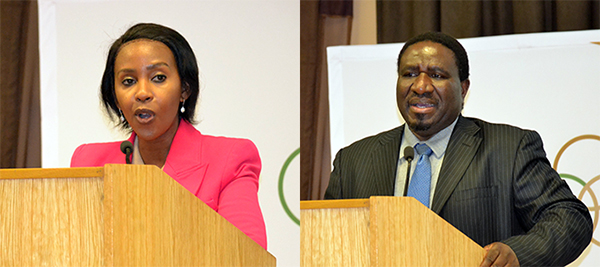
MEC Mbali Hlophe and Shonisani Munzhedzi
Shonisani Munzhedzi, the South African National Biodiversity Institute (SANBI) Chief Executive Officer and a Gauteng Premier Expert Advisory Committee (PEACCC) member, supported the partnership. "Among others," Munzhedzi continued, "SANBI works on evidence-based decision making, we offer models and trends analysis, and everything we put forth should be supported by credible science; therefore, we will be able to support the school and university appropriately."
Munzhedzi added that climate change compromises achieving Sustainable Development Goals such as ensuring water security, food security, and equality. "Together, we need to deal with the issue of spatial and integrated planning differently and ensure that we adapt urban areas in the process and invest more into that space, which would be an investment of future high returns," he maintained.
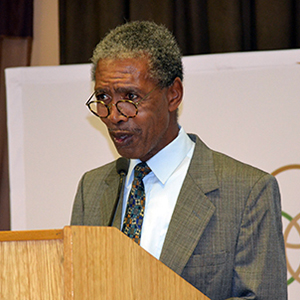
Prof Sibusiso Vil-Nkomo
Keynote speaker, Prof Sibusiso Vil-Nkomo, Executive Dean of the TM-School, focused on "The African perspective on climate change". He said: "If we do not accept the notion of a just transition, we will promote injustice to helpless citizens." Linking climate change to inventions in the 21st century, Vil-Nkomo said the technology could solve climate change issues and encouraged South Africa not to miss an opportunity to participate in the Fourth Industrial Revolution (4IR). He further emphasised that climate change threatened humanity and that this crisis challenges everyone, especially intellectuals, education institutions and the government, as it speaks to leadership, governance, policy analysis and implementation issues.
Elated about the partnership, Vil-Nkomo noted that the TM-School embraces academic excellence and is mandated to offer education that will bring meaningful change to society, especially on the African continent, on matters of leadership, governance and development. "These entail producing graduates who can respond to the ever-evolving challenges of the modern world, such as climate change," he said.
Vil-Nkomo remarked that this partnership requires leadership driven by commitment, discipline, sustainable planning for the future, and teamwork. He added: "The major challenges confronting South Africa are the economy and socioeconomy resulting from poverty and discrimination. We must understand the kind of economy South Africa must construct that can sustainably meet the needs of all economic citizens and their enterprises." He explained that the government’s objectives include achieving an adaptive economy characterised by growth, employment and equity, further acknowledging that it is a challenge to reach this objective.
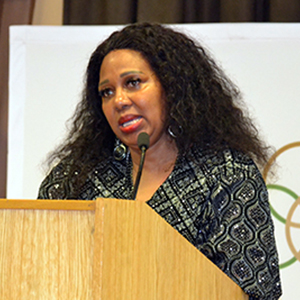
Matilda Gasela
Speaking against deindustrialisation, Vil-Nkomo said South Africa must drive industrialisation beyond the country and the African continent. He recommended that South Africa and the African continent must have or promote urgent scholarship on climate change, adding that they must focus on industrialisation as a prerequisite for success. He also encouraged citizens to read and learn more about climate change so that they can become part of the solution to it. Vil-Nkomo argued that the climate change study is transdisciplinary, further affirming the importance and urgency of educating citizens about climate change.
In closing, Matilda Gasela, Acting Head of the Department for the Gauteng Agriculture, Rural Development and Environment, said she appreciated the fruitful engagement and the reminder that today’s actions will determine the future of climate change. Gasela also lauded the TM-School for welcoming the partnership, being visionary and providing guidance.
Watch a video recording of the Climate Change Summit Gala Dinner here.
#Unisa150
* By Nancy Legodi, Acting Senior Journalist, Department of Institutional Advancement
Publish date: 2023/11/22
 Unisa celebrates a project of hope, dignity and student success
Unisa celebrates a project of hope, dignity and student success
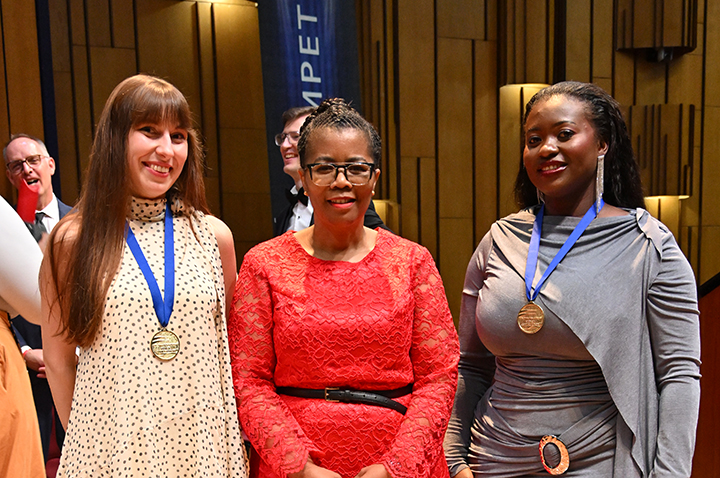 Women vocalists take top honours at Unisa's globally renowned showcase
Women vocalists take top honours at Unisa's globally renowned showcase
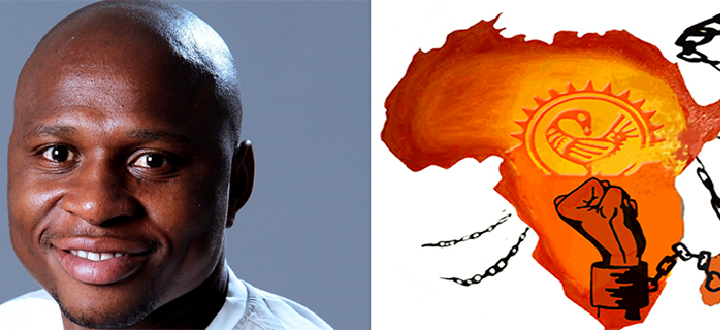 African wealth is dependent on investment in education and development
African wealth is dependent on investment in education and development
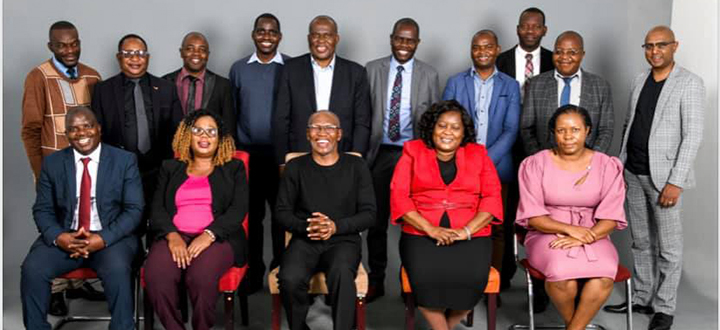 Unisa celebrates matric result success at Correctional Services ceremony
Unisa celebrates matric result success at Correctional Services ceremony
 Unisa ICT Director recognised among acclaimed IT leaders
Unisa ICT Director recognised among acclaimed IT leaders